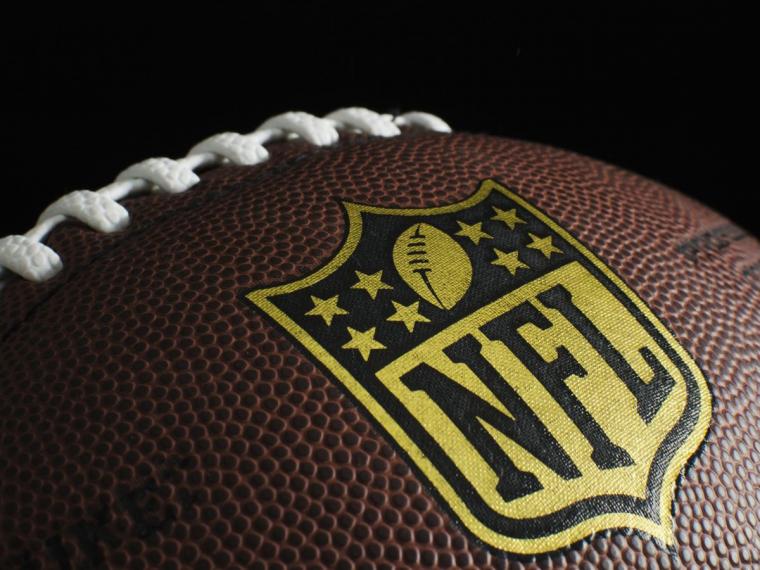

Remember a few years ago, when the sports world was high on the findings of a study concluding that medical marijuana improves concussion symptoms?
Now, the National Football League is giving $1 million in funding to medical research teams at the University of California San Diego and the University of Regina in Saskatchewan, Canada, to determine the impact of cannabinoids — natural compounds found in the cannabis plant — on pain management and neuroprotection from concussions in elite football players. The funding is part of research for the NFL-NFL Players Association Joint Pain Management Committee, which seeks to better understand and improve potential alternative pain management treatments for NFL players.
“As with the league’s broader approach to health and safety, we want to ensure that our players are receiving care that reflects the most up-to-date medical consensus,” Dr. Allen Sills, the NFL’s chief medical officer, said in astatement. “While the burden of proof is high for NFL players who want to understand the impact of any medical decision on their performance, we are grateful that we have the opportunity to fund these scientifically-sound studies on the use of cannabinoids that may lead to the discovery of data-based evidence that could impact the pain management of our players.”
The University of California San Diego received $500,000 to study the effects of cannabis on pain and recovery from sports-related injuries via a clinical trial with rugby players. It will be led by Dr. Mark Wallace, a pain management specialist and director of the Center for Pain Management at UC San Diego, and Dr. Thomas Marcotte, professor of psychiatry at the University of California School of Medicine and co-director of the Center for Medicinal Cannabis Research at UC San Diego. Elite athletes will vaporize treatments of such cannabinoids as tetrahydrocannabinol (THC), cannabidiol (CBD) — or a combination of the two — following game-related injuries, with outcomes monitored via remote phone apps.
“An innovation of this research is using a ‘real-world model’ of the NFL’s competitive injury burden with a group of elite athletes who experience similar injuries,” Marcotte said in a statement issued by UC San Diego. “It’s a first-of-its-kind randomized trial to examine the possible practical efficacy of cannabinoids on post-competition pain.”
Researchers at the University of Regina, meanwhile, received the other $500,000 to focus on the potential of using cannabinoids specifically for the prevention and treatment of concussions. It will be led by Dr. Patrick Neary, an exercise physiologist and professor in the university’s Faculty of Kinesiology and Health Studies.
According to CBC/Radio-Canada, “[h]is team will try to optimize the formulation of [THC] and [CBD] for pain management in those suffering from post-concussion syndrome and chronic pain, and for a neuroprotective treatment for concussions. He expects their CBD/THC formulation to show significant and positive changes to the brain that will reduce pain and use of prescription medications, such as opioids, and reduce concussions during athletic competition.”
“We know that CBD is anti-inflammatory, so it can help to reduce the inflammation while still allowing the brain to recover from those good chemicals that are coming in. So that’s the whole premise here. Can we use CBD? I believe we can,” Neary said, adding that cannabis could potentially be used as a daily supplement to prevent concussions. “One goal is for us to see whether we can prescribe a CBD or CBD/THC formulation that can be used on a daily basis for both intense exercise resistance [weight] training, and during contact sport competition.”
Proposals submitted by researchers at UC San Diego and the University of Regina were among 106 submitted by clinicians and researchers from around the world at the request of the PMC.
“Our team is excited to receive this funding to conduct a systematic, ‘real-world, real-time’ study with professional athletes, and which should shed further light upon the many anecdotal reports that cannabis is helpful in reducing post-competition pain,” UC San Diego’s Wallace said in a statement.
Several former NFL players have publicly admitted that they use (or have used) cannabis or have invested their own money in companies that produce and sell the drug for recreational or medicinal purposes. They include Hall of Famers Calvin Johnson and Randy Moss, as well as Marshawn Lynch and Michael Vick.
NFL officials have emphasized that NFL players are not permitted to participate in the two new studies; rather, all participants will be elite professional athletes outside of the league (such as the rugby players that UC San Diego researchers will monitor).
“While the results of the studies funded under this program may inform alternative pain management strategies, they will have no impact on the jointly administered Policy and Program on Substances of Abuse in place under the current NFL-NFLPA collective bargaining agreement,” the league noted in a statement.
The studies are expected to be conducted over three years, according to sporttechie.com.

